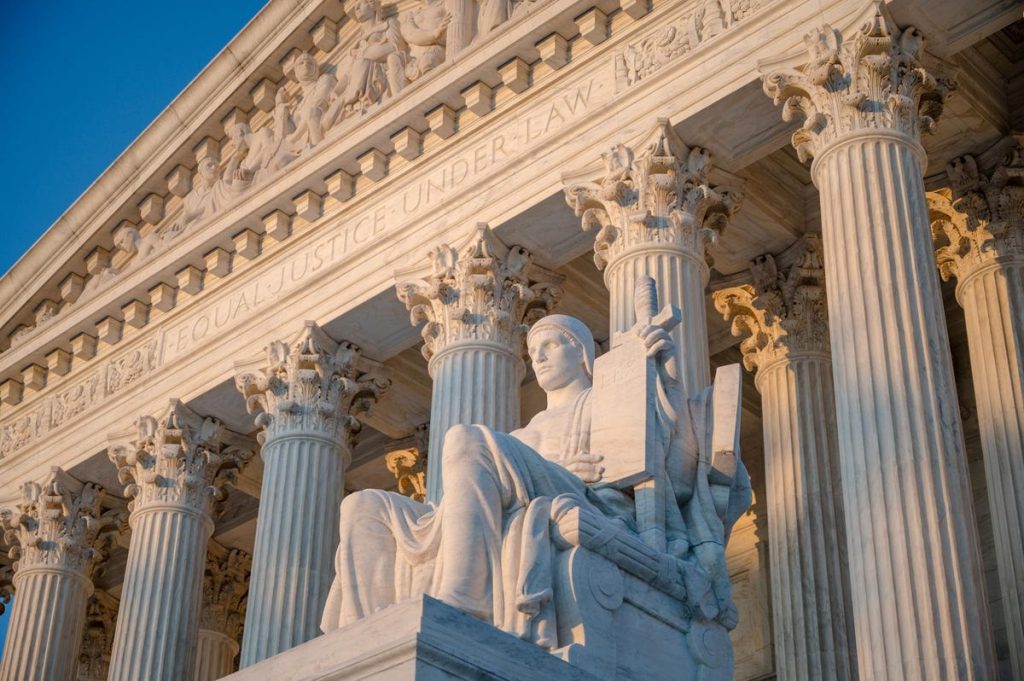The Supreme Court has denied a request to delay $6 billion in student loan forgiveness and other student debt relief under an approved settlement, paving the way for the Education Department to continue to discharge the debts of hundreds of thousands of borrowers.
Here’s the latest.
Legal Challenge Tries To Stop $6 Billion In Student Loan Forgiveness Under Settlement
The dispute before the Supreme Court is over an agreement to end Sweet v. Cardona, a class action lawsuit between the Education Department and student loan borrowers over disputed Borrower Defense to Repayment claims. The Borrower Defense to Repayment program can provide student loan forgiveness for borrowers who demonstrate that their school defrauded them through false promises or lies about key aspects of their educational program. The borrowers had alleged that the Education Department improperly denied or delayed thousands of Borrower Defense applications, stalling relief for years or issuing blanket denials with no meaningful factual investigation.
Last year, the Biden administration and the class of borrowers reached an agreement to resolve the litigation. Under the settlement agreement, the Education Department would approve $6 billion in student loan forgiveness for nearly a quarter million Borrower Defense applicants who had attended an institution on an approved list of schools that were accused of misconduct. The department would also fast-track processing and relief for certain other borrowers applying for the Borrower Defense program.
But three of the schools mentioned in the settlement agreement tried to block the settlement relief, including all $6 billion in student loan forgiveness. Those institutions — Lincoln Educational Services, Everglades College, and American National University — argued that the settlement agreement was unfair, and that being included on the list of dozens of other institutions would harm their reputations.
The federal judge overseeing the Sweet v. Cardona case and who approved the settlement agreement rejected these arguments in February, noting that relief for borrowers had already been unfairly delayed for years. The schools then appealed to the Ninth Circuit Court of Appeals and asked for a stay (or delay) of relief pending that appeal. When the Ninth Circuit denied that request, the schools then appealed to the Supreme Court.
Supreme Court Denies Request For Stay, Allowing Student Loan Forgiveness And Other Relief To Proceed
In a simple, one page order on Thursday, the Supreme Court rejected the challengers’ request for a stay.
“The application for stay presented to Justice Kagan and by her referred to the Court is denied,” says the order.
“DENIED,” said the Project on Predatory Student Lending — the organization representing the class of student loan borrowers in Sweet v. Cardona — in a tweet on Thursday. The Project had previously characterized the schools’ appeal as “a desperate attempt to bypass the normal appellate process.”
“Today’s swift and decisive action from the highest court should end, once and for all, any ongoing debate about the legitimacy of this settlement,” said Eileen Connor, President and Director of the Project on Predatory Student Lending, in a statement late Thursday. “The message is clear: the rights of student borrowers will not falter, even in the face of well-funded, politically-motivated attacks masquerading as legal argument.”
The Supreme Court’s order allows the Education Department to continue implementing the settlement relief, which has been ongoing since the district court rejected the schools’ initial challenge in February. Class members — defined as federal student loan borrowers who submitted a Borrower Defense to Repayment application on or before June 22, 2022, and attended one of the schools referenced in the settlement agreement’s approved list, will receive automatic student loan forgiveness and other related debt relief over the remainder of this year. Other borrowers may be entitled to relief, as well, and can learn more about eligibility by visiting the Project on Predatory Student Lending’s informational website.
Next Up: Supreme Court Decision On Biden’s Other Student Loan Forgiveness Program
The challengers had tried to argue that the Biden administration’s decision to enter into the settlement agreement involving $6 billion in student loan forgiveness was akin to the administration’s separate, more sweeping program that would provide $10,000 or $20,000 in student loan cancellation for millions of borrowers. The Supreme Court is already considering legal challenges associated with that program, which some estimate could cost up to $400 billion. But Biden administration attorneys, and attorneys for the class of student loan borrowers, argued in legal briefs submitted this week that the two programs are entirely distinct, both in their scope and in their legal basis.
A Supreme Court ruling on Biden’s more massive one-time student loan forgivenes plan is expected this June.
This article was updated to include a statement from the Project on Predatory Student Lending.
Further Student Loan Forgiveness Reading
What Happens If The Supreme Court Strikes Down Biden’s Student Loan Forgiveness Plan?
Biden’s Student Loan Forgiveness Plans And Payment Pause Face Multiple New Threats
453,000 Borrowers Approved For Student Loan Forgiveness Under Waiver As Processing Continues
Republican Effort To Repeal Biden’s Student Loan Forgiveness Plan Gains Steam
Read the full article here




